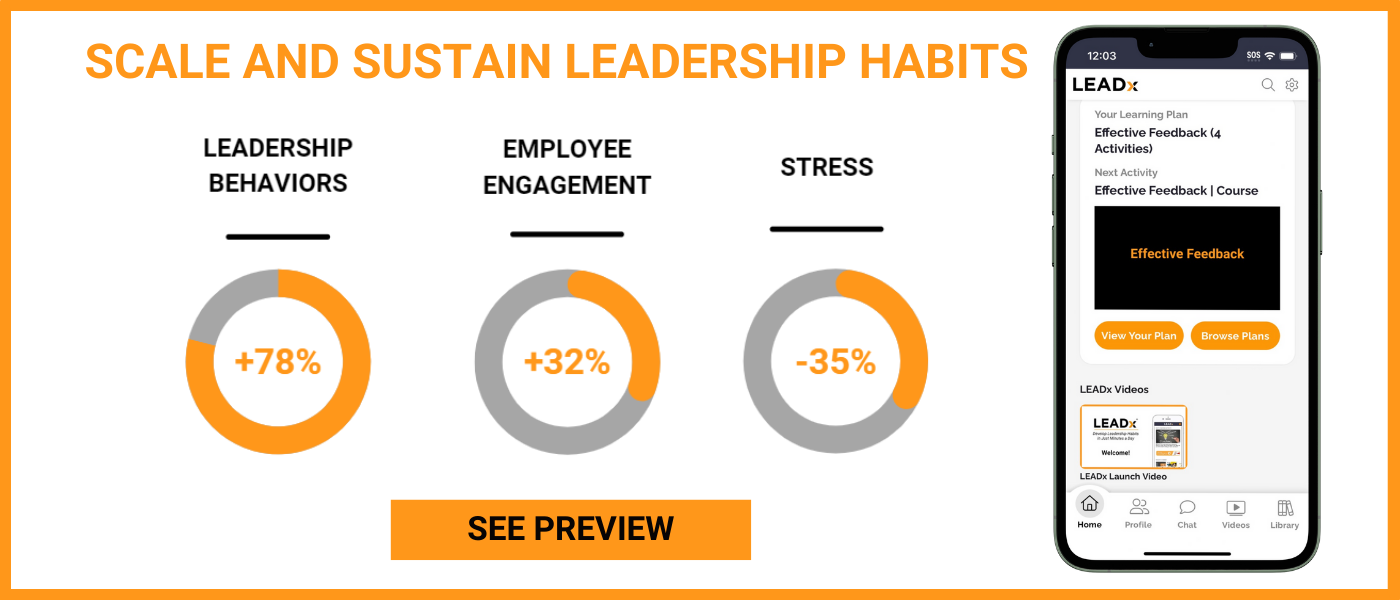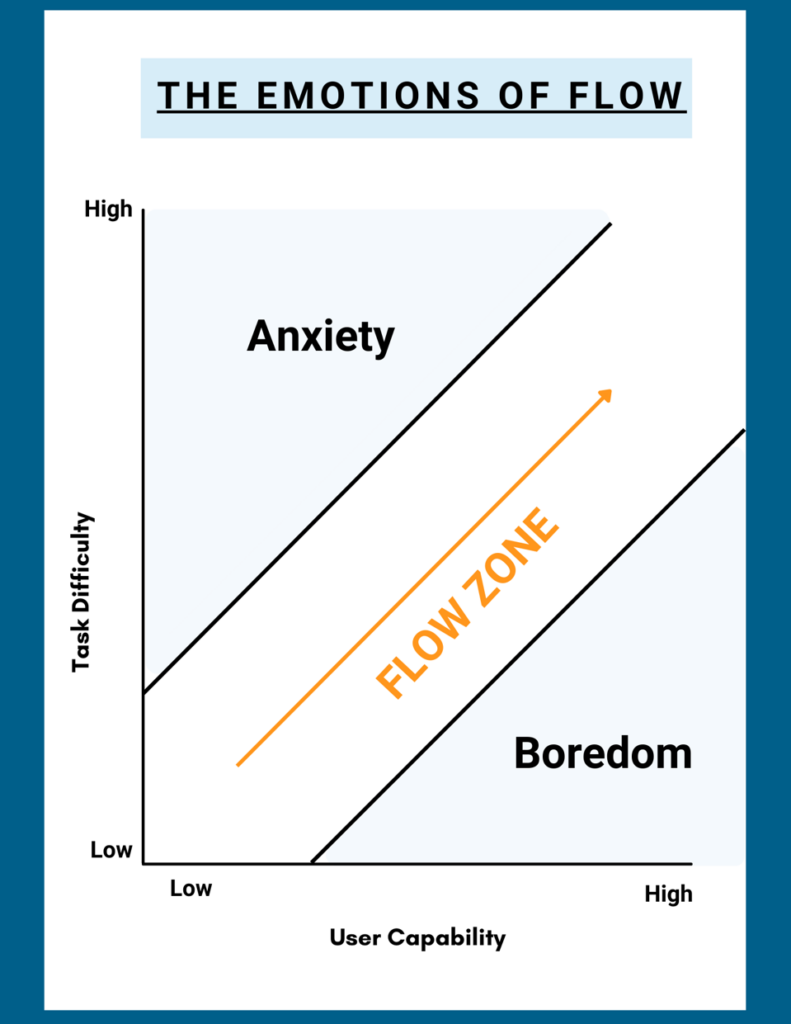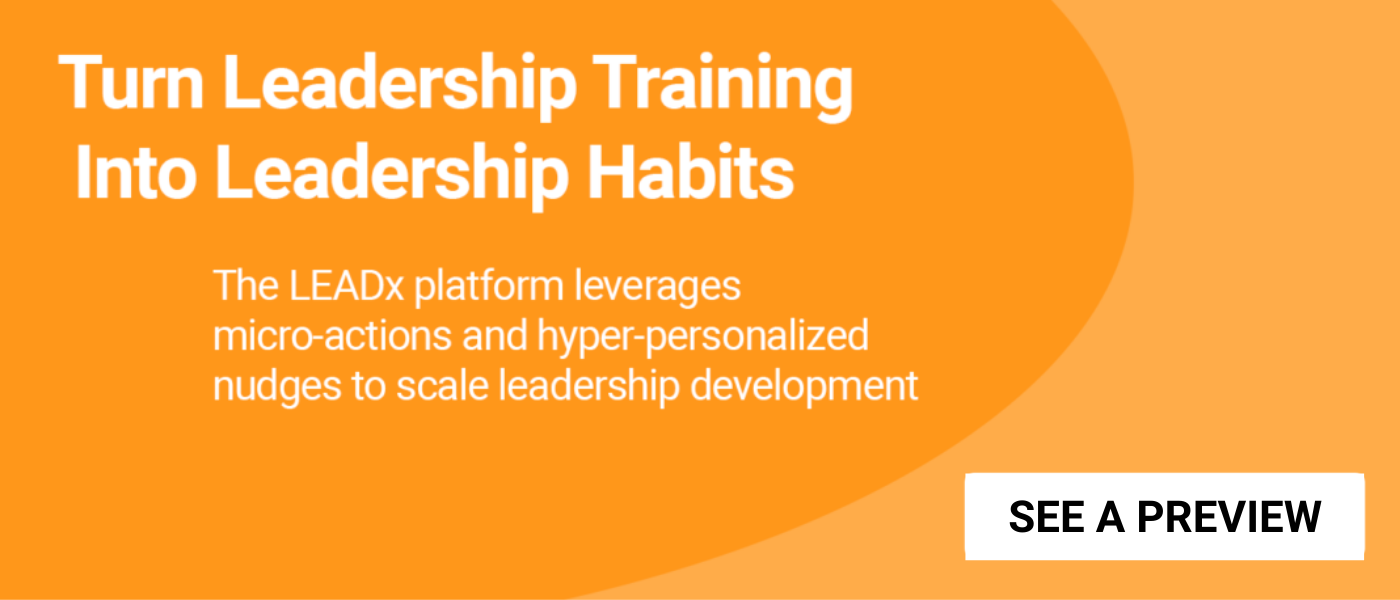
When people talk about the importance of emotional intelligence, they don’t talk often enough about productivity. The gold standard of productivity is “flow state.” Flow researcher Steven Kotler defines flow as “a state of intense focus and absorption in an activity, where people are so immersed that they lose track of time and other distractions.”
 In addition to making your work day fly by, flow matters because:
In addition to making your work day fly by, flow matters because:
- You’re 5x as productive in flow (if not more). Focus sharpens. Motivation increases.
- It feels amazing: Your brain releases norepinephrine, dopamine, endorphins, anandamide, and serotonin. All cherished, feel-good hormones.
- It increases your creativity. You take in and process more information, faster. Your ability to recognize patterns shoots up.
The interesting (and often overlooked) thing about flow is that it’s massively influenced by your emotions.

By leaning on emotional intelligence strategies, you can better position yourself to achieve a flow state.
Of course, there’s no silver bullet. It’s impossible to work in a state of flow for the entirety of your working day. The best you can do is carve out periods of time each day when distractions are minimal and your task seems well-suited for flow (not too difficult, not too easy). But if you can do that, your productivity will increase massively and you’ll feel great in the process.
What follows are five simple EQ strategies you can use to tilt the odds in your favor.
1. When you sit down to work, ask yourself, “Which side of this graph do I fall on?”
Looking at the graph, ask yourself, “Does this task lend itself more to feelings of anxiety or feelings of boredom?”
2. Depending on your response, use one of two EQ strategies to move yourself toward the middle of the graph.
For boredom: Ask yourself, “How can I operate from a mindset of play?” If possible, create games or challenges. How quickly can you do this boring task? How accurately? Can you find a way to templatize your work and save time in the future? Can you use Chat GPT to cut the time it takes in half?
For anxiety: Ask yourself, “How can I break off a manageable chunk? What’s an entryway to this overwhelming work?” Look for one piece of the messy, complicated thing in front of you that you feel confident you can figure out. For example, if I was feeling overwhelmed about writing this article, I might ask myself, “What’s one EQ strategy I know will help people achieve flow?” Then, I could work from there. Often, this is all it takes to slip comfortably into flow.
Think of the flow channel in the image as a river. Your job is to push your driftwood through the sand until the river takes it. The hard work is up front.
3. Force yourself to rest before you want to.
Hemingway famously stopped writing for the day mid-sentence. “The best way is always to stop when you are going good and when you know what will happen next. If you do that every day…you will never be stuck,” he said. The same goes for flow. Studies show that the optimal oscillation between focus and rest is something like 52 minutes on and 17 minutes off. Other research suggests working in 45-80 minute stretches. Work too far beyond the 80-minute mark, and you see diminishing returns for your ability to do good work later in the day.
4. Exercise hard, about halfway through the day if possible.
After working hard through the first half of the day, it’s natural to slow down a bit. To hit a wall of sorts. Often, this is the perfect time to get outside and exercise. Author Haruki Murakami has run for one hour every day (about halfway through the day) for 30 years. The main reason he runs? For the neurological benefits. In his book, Novelist As A Vocation, he explains that when you engage in aerobic exercise, you produce a rapid increase in the number of neurons in your hippocampus. This lasts for 28 hours. During that time, your neurons wait for intellectual stimulation. If you give it to them (by working), your neurons connect with the existing networks in your brain, broadening and densening your brain in the process. This heightens your ability to learn and remember things. Additionally, exercise is a natural antidote to anxiety and overwhelm. Clear your head with exercise halfway through the day and slipping back into a flow state in the afternoon suddenly feels more achievable.
5. Approach your work with a touch of playfulness and lightness.
For whatever reason, we associate concentration with stuffy seriousness. But taking your work too seriously can make it harder to find flow. You’ll get more anxious about decisions. You’ll feel like things need to be just right. You won’t give yourself creative license to take risks. One of the best ways to loosen up and think more creatively is to embrace the mindset of a child or a beginner. To a child, simple things are fascinating opportunities for experimentation and play. As the legendary poet, Rainer Maria Rilke, wrote, “May what I do flow from me like a river, no forcing and no holding back, the way it is with children.”
EQ Is A Productivity Unlock
Even when the goal of your work is not to achieve flow, EQ can be a powerful spark of productivity. Nearly all of the greatest impediments to productivity can be traced back to emotions:
- Perfectionism is often traced back to fear of judgment or failure.
- Self-doubt is often the result of comparison to others, imposter syndrome, or lack of self-worth.
- Overwhelm stems from uncertainty or struggling to set boundaries.
By taking the time to assess your EQ, and then practicing emotionally intelligent strategies, you can trigger massive improvements in your ability to focus and be productive.






